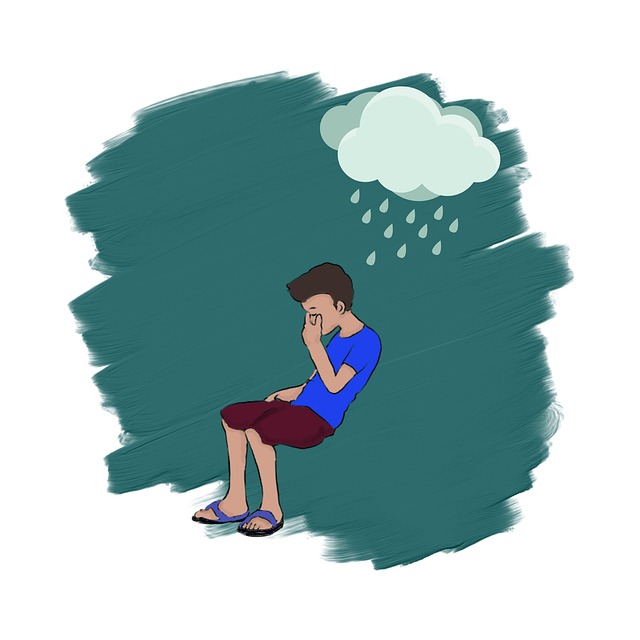Mental wellness group facilitation, as exemplified by Castle Rock Parenting Skills Therapy, uses interactive sessions led by trained healthcare providers to empower parents with communication and conflict resolution skills. This approach strengthens family ties, promotes healthy child development, and builds cultural competency. Through active listening, reflective summarizing, and engaging activities like mindfulness and art therapy, facilitators create safe spaces where participants share experiences, learn from each other, and develop coping strategies for emotional challenges. Group facilitation offers significant advantages in mental health care, fostering connection and reducing isolation while presenting challenges such as managing diverse personalities and maintaining inclusivity.
Mental wellness group facilitation plays a pivotal role in enhancing collective support and understanding. This article delves into the art and science of leading such groups, focusing on techniques that foster engaging environments. We explore Castle Rock Parenting Skills Therapy as a successful model, highlighting its benefits for participants. Through effective engagement strategies, facilitators can navigate challenges unique to mental health care, creating safe spaces for profound personal growth. Discover key insights into facilitating supportive communities that promote resilience and well-being.
- Understanding Mental Wellness Group Facilitation
- Castle Rock Parenting Skills Therapy: An Overview
- Effective Techniques for Group Engagement
- Benefits and Challenges of Group Facilitation in Mental Health Care
Understanding Mental Wellness Group Facilitation

Mental wellness group facilitation is a specialized skill set designed to create safe, supportive environments where individuals can share experiences, learn from one another, and develop coping strategies. It’s not merely about leading a discussion; it involves cultivating a sense of community while fostering open communication. Techniques like active listening, reflective summarizing, and structured activities are employed to enhance mental health awareness and promote positive change among group members.
In the context of Castle Rock Parenting Skills Therapy, for instance, facilitators play a crucial role in helping parents navigate complex emotional landscapes and improve their parenting techniques. By incorporating effective communication strategies and tailoring programs to meet specific needs, these professionals can empower individuals to take charge of their mental well-being. This holistic approach not only benefits the participants but also contributes to the broader goal of Mental Health Education Programs Design, ensuring that communities are equipped with the tools necessary for sustained mental wellness.
Castle Rock Parenting Skills Therapy: An Overview

Castle Rock Parenting Skills Therapy is a specialized program designed to empower parents and caregivers with effective communication strategies and conflict resolution techniques. This therapeutic approach aims to strengthen family dynamics, enhance relationships, and promote healthy child development. Facilitated by trained healthcare providers, the therapy focuses on building cultural competency among participants, ensuring inclusive and understanding environments for all families.
Through interactive sessions, parents learn valuable skills to manage challenging behaviors, set boundaries, and foster open dialogue. The program addresses various issues, including depression prevention and stress management, creating a supportive space for emotional growth. By mastering these parenting skills, individuals become better equipped to navigate the complexities of family life, ultimately contributing to happier and more resilient households.
Effective Techniques for Group Engagement

Creating an engaging group environment is key to successful Castle Rock Parenting Skills Therapy sessions. Facilitators should employ dynamic techniques to foster active participation and build a supportive atmosphere. One effective approach is utilizing open-ended discussions, encouraging members to share their experiences and insights, creating a safe space for vulnerability and connection. By promoting peer learning, participants can gain valuable perspectives from one another, enhancing the overall therapeutic experience.
Additionally, incorporating interactive activities and exercises tailored to mental wellness can break the monotony of traditional therapy sessions. These might include mindfulness practices, compassion cultivation exercises, or even group art therapy. Such activities not only make the sessions more enjoyable but also provide practical tools for burnout prevention strategies among healthcare providers attending the groups. By combining engagement techniques with relevant mental wellness topics, facilitators create a dynamic and impactful learning environment.
Benefits and Challenges of Group Facilitation in Mental Health Care

Group facilitation offers unique benefits for mental health care, creating a supportive environment where individuals can connect, share experiences, and gain insights from one another. This collective approach enhances feelings of belonging and reduces the sense of isolation often associated with mental illness. Castle Rock Parenting Skills Therapy, for instance, has seen success in fostering open communication through group sessions, allowing participants to learn from each other’s journeys while gaining new tools and perspectives.
However, challenges arise when facilitating such groups. Managing diverse personalities, ensuring every member feels heard, and maintaining a safe, non-judgmental space can be demanding. Facilitators must employ effective communication strategies, such as active listening and inclusive language, to navigate these complexities. Mental Wellness Coaching Programs Development often emphasize the need for tailored approaches, recognizing that what works for one group may not suit another, thereby highlighting the continuous learning and adaptation required in this domain. Further, Mental Illness Stigma Reduction Efforts can be significantly aided by group facilitation, as it encourages empathy and understanding among participants, contributing to a more supportive and accepting community.
Mental wellness group facilitation plays a crucial role in enhancing therapeutic outcomes, as evidenced by practices like Castle Rock Parenting Skills Therapy. By employing effective techniques, facilitators can foster engaging environments that promote healing and growth. While challenges exist, the benefits of group dynamics in mental health care are undeniable. Understanding these techniques is essential for professionals aiming to improve client engagement and overall well-being.














